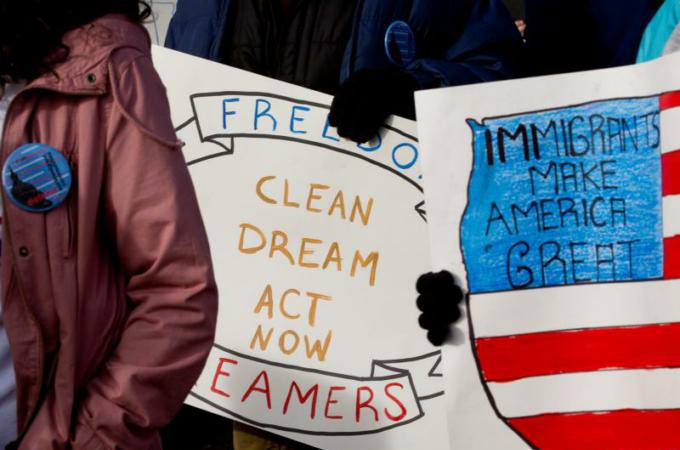USCCB migration chairman says Senate needs to act on 'Dreamer,' TPS bill
WASHINGTON (CNS) -- The chairman of the U.S. bishops' Committee on Migration has urged the U.S. Senate to take action and pass a bill to protect "Dreamers" and as well beneficiaries of the Temporary Protected Status and Deferred Enforced Departure programs.
Washington Auxiliary Bishop Mario E. Dorsonville's statement, issued late June 4, came on the first anniversary of House passage of the American Dream and Promise Act, H.R. 6, which provides a pathway to citizenship for those brought to the United States illegally as children by their parents. Best known as "Dreamers," they are beneficiaries of the Deferred Action for Childhood Arrivals program, or DACA.
H.R. 6 also outlines a citizenship path for holders of Temporary Protected Status, or TPS, and Deferred Enforced Departure, known as DED.
TPS is a temporary immigration status provided to nationals of specifically designated countries that are confronting an ongoing armed conflict, environmental disaster, or extraordinary and temporary conditions. DED also is a temporary immigration benefit for individuals from countries and regions facing similar situations.
"Today, sadly, Dreamers and TPS holders remain vulnerable and without permanent legal status," Bishop Dorsonville said. "This continued uncertainty for Dreamers and TPS holders comes at a time during the COVID-19 pandemic when many Dreamers and TPS holders are, alongside U.S. citizens, on the front lines providing essential work for our country in health care, food supply and transportation."
Currently, he noted, over 62,000 DACA beneficiaries are working in health care.
"In the year since the passage of H.R.6, there has been no action in the U.S. Senate to advance permanent legislative protection for Dreamers and TPS holders," he said.
He added: "As we await a decision from the U.S. Supreme Court on the legality of ending the Deferred Action for Childhood Arrivals program, we again call on the Senate to push forward with legislation that provides a path to citizenship for these individuals, who are essential to our communities, our church and our country."
The high court's decision, expected later in June, will determine whether President Donald Trump had the authority to rescind DACA by executive order. It was implemented in 2012 with an executive order from President Barack Obama.



















